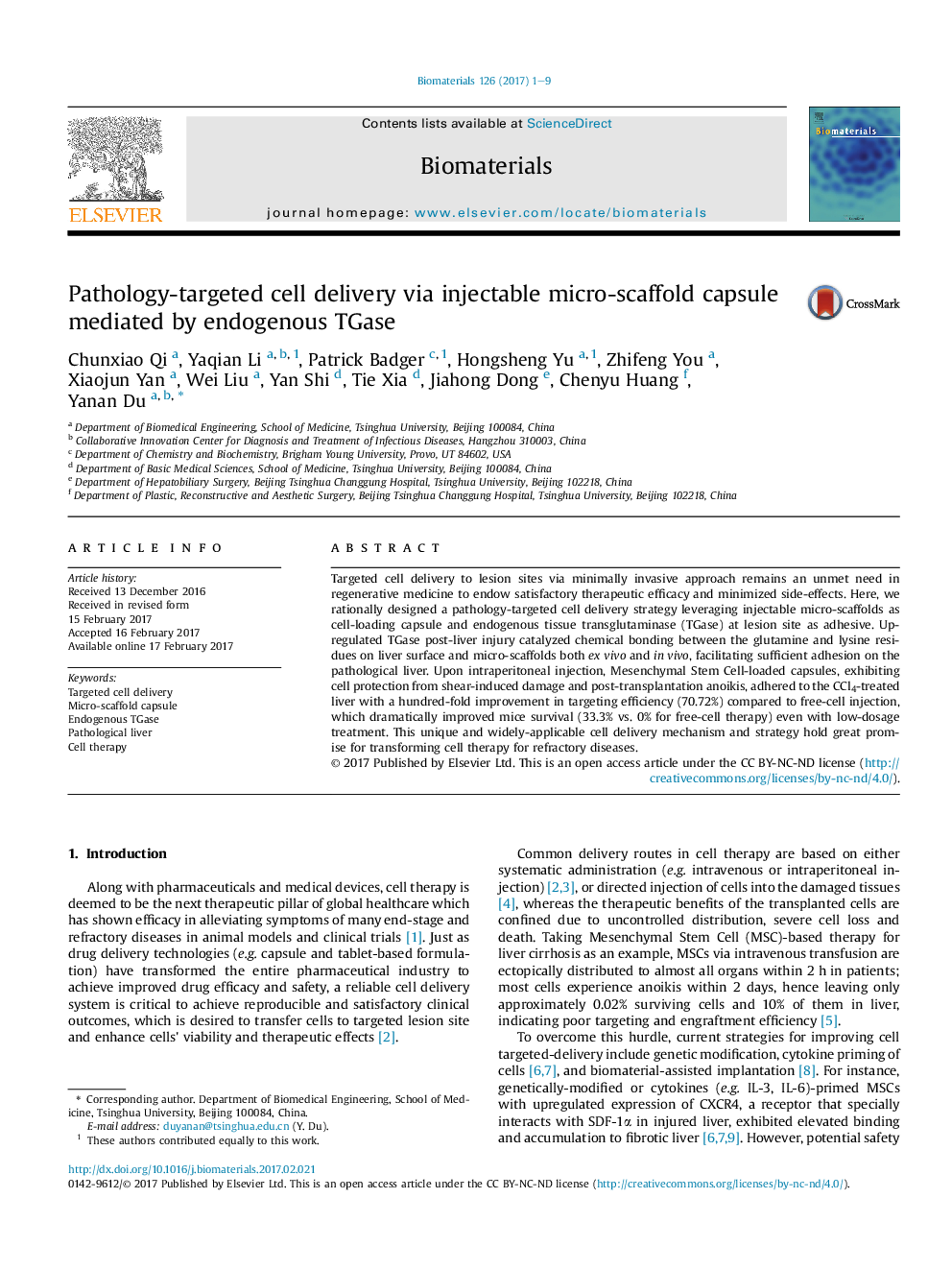| Article ID | Journal | Published Year | Pages | File Type |
|---|---|---|---|---|
| 6450750 | Biomaterials | 2017 | 9 Pages |
Targeted cell delivery to lesion sites via minimally invasive approach remains an unmet need in regenerative medicine to endow satisfactory therapeutic efficacy and minimized side-effects. Here, we rationally designed a pathology-targeted cell delivery strategy leveraging injectable micro-scaffolds as cell-loading capsule and endogenous tissue transglutaminase (TGase) at lesion site as adhesive. Up-regulated TGase post-liver injury catalyzed chemical bonding between the glutamine and lysine residues on liver surface and micro-scaffolds both ex vivo and in vivo, facilitating sufficient adhesion on the pathological liver. Upon intraperitoneal injection, Mesenchymal Stem Cell-loaded capsules, exhibiting cell protection from shear-induced damage and post-transplantation anoikis, adhered to the CCl4-treated liver with a hundred-fold improvement in targeting efficiency (70.72%) compared to free-cell injection, which dramatically improved mice survival (33.3% vs. 0% for free-cell therapy) even with low-dosage treatment. This unique and widely-applicable cell delivery mechanism and strategy hold great promise for transforming cell therapy for refractory diseases.
